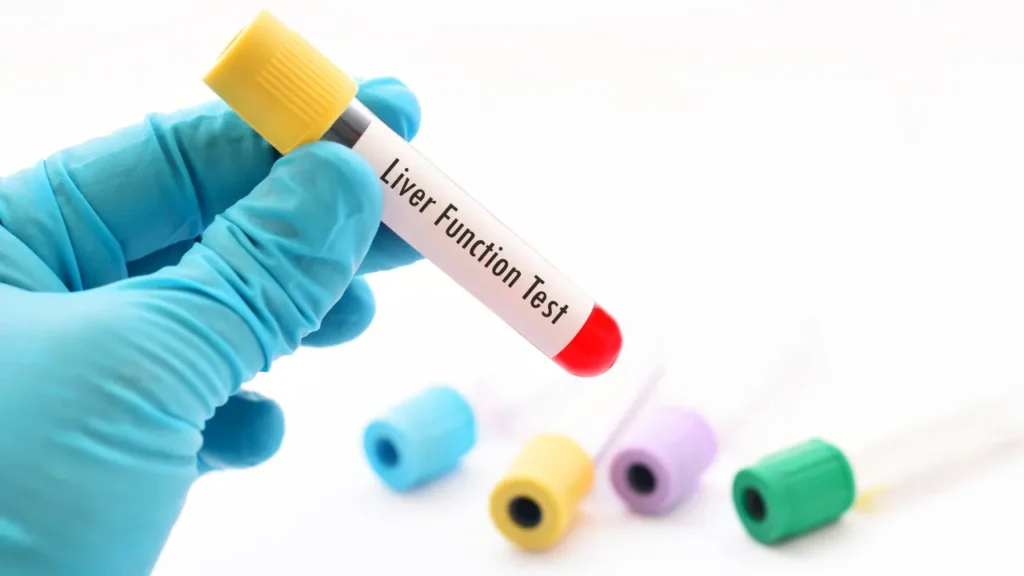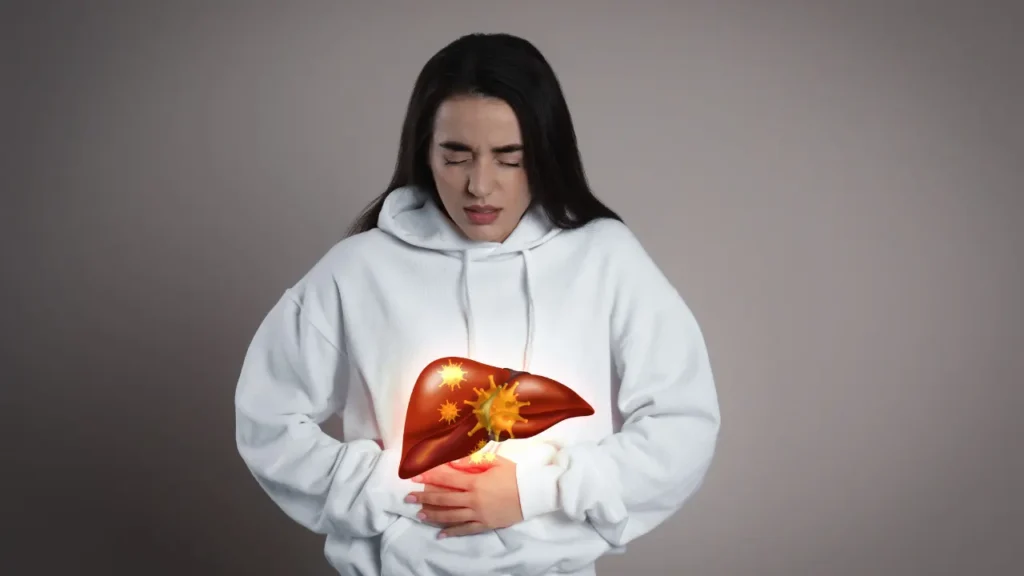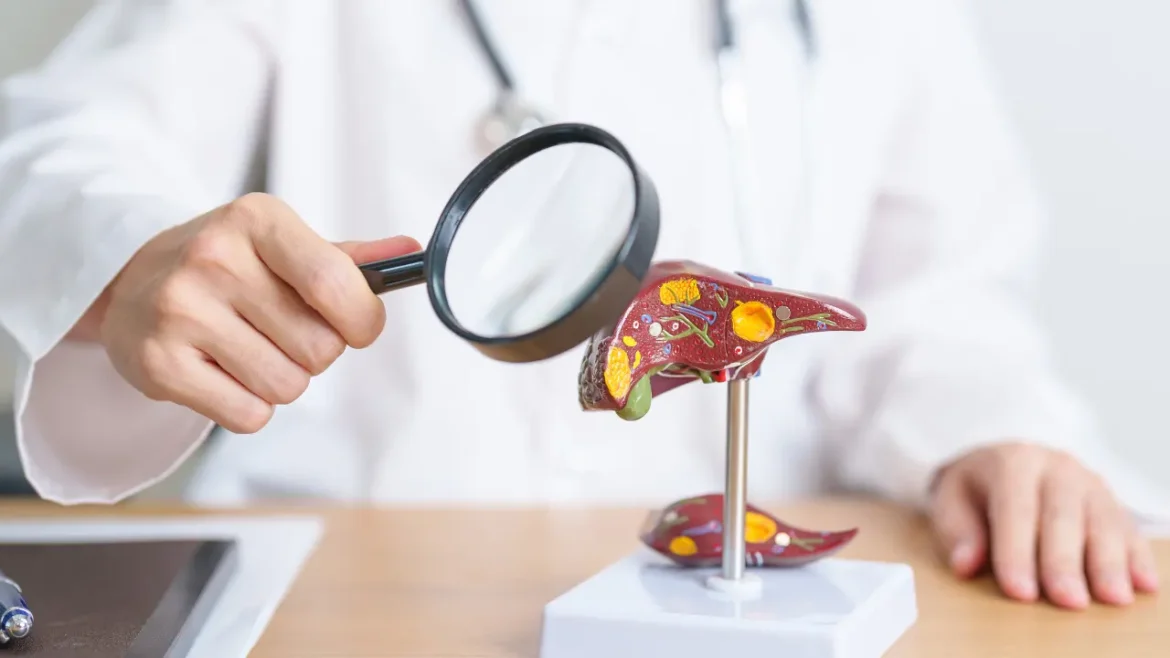Description
A relatively uncommon but significant autoimmune liver disease is autoimmune hepatitis (AIH). Persistent liver inflammation that damages hepatocytes and may proceed to liver fibrosis, end-stage liver disease, and cirrhosis are its main defining features. AIH is a complicated illness with several underlying causes, and its cause is yet unknown. The main diagnostic criteria for AIH are histological, biochemical, serological, and clinical.
Young to middle-aged people are frequently affected, and women are more likely to be affected than men. Acute or chronic hepatitis (AIH) can present with a variety of symptoms, including jaundice, abdominal discomfort, fatigue, and hepatomegaly. Interface hepatitis, lymphoplasmacytic infiltration, and varying levels of fibrosis are frequently found upon histopathological inspection.
You May Also Like:
OLLY GOODBYE STRESS GUMMIES REVIEWED: A LEADING STRESS RELIEF PRODUCT
THE BEST SUPPLEMENTS TO SUPPORT SLEEP: TRY GOLDEN MILK TO REDUCE STRESS AND RELAX BEFORE BED
Autoimmune Hepatitis (AIH): Description, Causes, and Treatment Protocol is an original (HealthXWire) article.
Possible Causes
It is unclear what exactly induces autoimmune hepatitis (AIH). Nevertheless, it is thought that dysfunction of the immune system, environmental triggers, and genetic predisposition all work together to cause AIH. There are several potential causes and risk elements, which are as follows: –
Environmental Triggers: People with a genetic vulnerability to AIH may be more susceptible to environmental triggers. Among these triggers are illnesses, drugs, and exposure to chemicals or toxins. According to theory, these triggers will arouse the immune system, which will then mount an attack on the liver.
Genetic Factors: Genetic susceptibility to AIH is supported by evidence. AIH has been linked to an elevated risk of development by particular genes, human leukocyte antigen (HLA), particularly HLA-DR4 and HLA-DR3. There may be other factors at play because possessing these genes cannot ensure that a person will acquire the illness.
Infections: The emergence of AIH has been associated with a number of infections. AIH has been linked to viral illnesses like hepatitis A, B, C, and E, Epstein-Barr virus, and CMV. These infections might set off an immunological reaction that unintentionally targets the liver cells for destruction.
Medications: Several medications have been linked to either the onset of AIH or an increase in pre-existing cases. Many medications have been linked to AIH, including statins, nitrofurantoin, minocycline, and certain antiviral drugs. The majority of people who consume these medicines do not, nevertheless, experience the onset of drug-induced AIH.
Immune System Dysfunction: The autoimmune disorder known as AIH is marked by an excessive immune response that inadvertently affects the liver cells. There are probably other contributing factors, including complex interactions between environmental, genetic, and immunological factors, that contribute to the underlying immune dysfunction.
Hormonal Factors: Given that women are more likely than men to acquire AIH, hormonal factors may be involved in its development. Hormone changes brought on by pregnancy, menopause, puberty, hormone replacement therapy, and oral contraceptives have all been linked to AIH, either starting or getting worse. There is still much to learn about the specific mechanisms through which hormones impact AIH.
Exacerbating and Mitigating Factors
Factors that make autoimmune hepatitis (AIH) worse: –
Medications: Some drugs have been linked to starting AIH or worsening pre-existing cases. The involvement of medications includes statins, nitrofurantoin, and minocycline. To assess any potential effects on AIH, it is essential to let medical professionals know about the medications being taken.
Infections: A few viruses, including Epstein-Barr virus, cytomegalovirus, and viral hepatitis (A, B, or C), can cause or exacerbate AIH.
Environmental Triggers: The onset or progression of AIH may be influenced by exposure to specific environmental elements like poisons, chemicals, or pollution. The environment’s precise triggers, nevertheless, are still unknown.
Hormonal Factors: As mentioned, the onset and worsening of AIH have both been linked to hormonal shifts and imbalances, especially among women. For example, menopause, pregnancy, and hormonal changes brought on by puberty. Additionally, oral contraceptives and hormone replacement therapy may affect AIH function.
Factors that reduce the risk for autoimmune hepatitis (AIH): –
Lifestyle Modifications: Making healthy lifestyle choices can have a positive impact on AIH management. This entails sustaining a healthy weight, engaging in regular exercise, abstaining from binge drinking alcohol, and maintaining a balanced diet. These lifestyle modifications can support overall liver health and minimize additional stress on the liver.
Medication Adherence: The management of AIH depends heavily on following the recommended drug schedule. Medication use in accordance with the doctor’s orders reduces autoimmune reactions, controls liver inflammation, and keeps the disease in remission.
Stress Management: The immune system’s instability has been linked to stress, which could make the symptoms of AIH worse. Engaging in fun activities, practicing mindfulness, and implementing relaxation techniques can all help lower stress levels and possibly improve the outcomes of AIH.
Regular Monitoring: In managing AIH, it is crucial to routinely check autoimmune markers, liver function tests, and general health conditions. This enables medical professionals to gauge patient response to treatment, identify relapses or problems, and make the appropriate modifications to the treatment regimen.
Support and Education: It might be very helpful to connect with community organizations, patient advocacy groups, or medical experts who are knowledgeable about AIH. For those with AIH, these sites can provide knowledge, direction, and emotional support.
Vaccinations: Immunizations can lessen the severity of outbreaks, which can cause or exacerbate AIH, or help prevent them altogether. As recommended by healthcare professionals, vaccination against illnesses like pneumococci, hepatitis B and A, and others is advised.

Standard Treatment Protocol
The goal of the typical AIH treatment plan is to attain and maintain illness remission while halting disease progression. The following constitutes the cornerstone of treatment: –
Azathioprine: The most popular immunosuppressive drug used in conjunction with corticosteroids is azathioprine. The possibility of side effects linked to long-term corticosteroid treatment is decreased, which aids in maintaining remission while allowing for a reduced corticosteroid dosage. Due to probable adverse effects, azathioprine necessitates routine blood count and liver enzyme testing.
Corticosteroids: The corticosteroid most frequently prescribed is prednisone or prednisolone. High doses are first given to establish remission, then the dose is gradually tapered to the lowest amount that is still effective for maintenance therapy. Corticosteroids lessen liver inflammation and stop the aberrant immunological reaction.
Monitoring and Maintenance: To evaluate treatment response, identify relapse or drug-related problems, and alter medication dosages as necessary, regular evaluation of tests for liver function, autoimmune indicators, and blood counts becomes crucial. To stop relapse and disease progression, ongoing maintenance therapy is typically necessary.


Treatment Options
While the normal treatment protocol serves as the foundation for AIH therapy, adjunct therapies, and complementary techniques may be taken into account to assist conventional treatment and possibly increase its efficacy, including the following: –
Nutritional Supplements: A supportive role for nutritional supplements in the treatment of autoimmune hepatitis (AIH) may be able to help reduce liver inflammation and promote overall liver health. The following dietary supplements have been investigated in relation to AIH: –
- Antioxidants
The possible hepatoprotective effects of antioxidants, particularly vitamin E and selenium, are being investigated in liver disorders, including AIH. Their precise function in the management of AIH is still unknown.
- Vitamin D
In AIH, vitamin D insufficiency is typical and has been linked to disease severity. Supplementation might be advantageous, but further research is needed to determine the best doses and how they affect the course of AIH.
- Omega-3 Fatty Acids
Since omega-3 fatty acids possess anti-inflammatory qualities, they might help lessen liver inflammation causing AIH. It is usual practice to take fish oil supplements that are high in docosahexaenoic (DHA) and eicosapentaenoic (EPA) acids.
Natural and Herbal Remedies: It is crucial to proceed cautiously when using natural and herbal treatments during autoimmune hepatitis (AIH). While certain herbal supplements and natural cures may have potential advantages, their usage should be reviewed by medical professionals since they may interact with prescription drugs. Their efficacy has not been properly backed with scientific data too.Following are a few herbal and natural treatments that have been researched as potential supplemental treatments for AIH: –
- Turmeric (Curcuma longa)
The primary component of turmeric, curcumin, has been shown to have immunomodulatory and anti-inflammatory properties. Although preclinical studies have shown promise, more analysis is required to assess its clinical efficacy in AIH.
- Milk Thistle (Silybum marianum)
The anti-inflammatory and hepatoprotective effects of milk thistle extract make it a well-liked herbal medicine. It has silymarin, which has potential anti-fibrotic and antioxidant properties. But there isn’t much proof that it works for AIH, and it is important to think about possible drug interactions.
- Other Herbal Remedies
Other herbal medicines, including artichoke leaf (Cynara scolymus), dandelion root (Taraxacum officinale), and licorice root (Glycyrrhiza glabra), have been researched for their possible anti-inflammatory and hepatoprotective qualities. A healthcare physician should be consulted before using them because there is insufficient data to support their efficacy in AIH.
However, before commencing any complementary or adjunctive therapy, you must consult a doctor. They can evaluate a person’s needs, take into account potential interactions with medications that are prescribed, and offer advice on suitable dosing and monitoring.


Conclusion
Autoimmune hepatitis (AIH) is a rare liver disease that may develop when certain factors triggered the immune system and it starts attacking the liver. These potential factors may be due to genetic factors, viral infections medications, immune system dysfunction, and hormonal factors. Autoimmune hepatitis may lead to a chronic condition such as severe liver damage, cirrhosis which may even lead to liver cancer.
Hence, timely diagnoses are essential in preventing disease progression and maintaining liver health. Treatment of AIH typically involves immunosuppressive medications, such as corticosteroids and azathioprine, to control the autoimmune response and reduce liver inflammation. Additionally, lifestyle modifications, such as maintaining a balanced diet, and limiting alcohol intake can further support liver health. This autoimmune liver disorder should be extensively studied to address individual needs for this disease.


Additional resources for further reference
https://www.mayoclinic.org/diseases-conditions/autoimmune-hepatitis/symptoms-causes/syc-20352153
https://www.webmd.com/hepatitis/autoimmune-hepatitis
https://rarediseases.org/rare-diseases/autoimmune-hepatitis/
https://www.healthline.com/health/autoimmune-hepatitis
Important Note: The information contained in this article is for general informational purposes only, and should not be construed as health or medical advice, nor is it intended to diagnose, prevent, treat, or cure any disease or health condition. Before embarking on any diet, fitness regimen, or program of nutritional supplementation, it is advisable to consult your healthcare professional in order to determine its safety and probable efficacy in terms of your individual state of health.
Regarding Nutritional Supplements Or Other Non-Prescription Health Products: If any nutritional supplements or other non-prescription health products are mentioned in the foregoing article, any claims or statements made about them have not been evaluated by the U.S. Food and Drug Administration, and such nutritional supplements or other health products are not intended to diagnose, treat, cure, or prevent any disease.
Table of Contents


